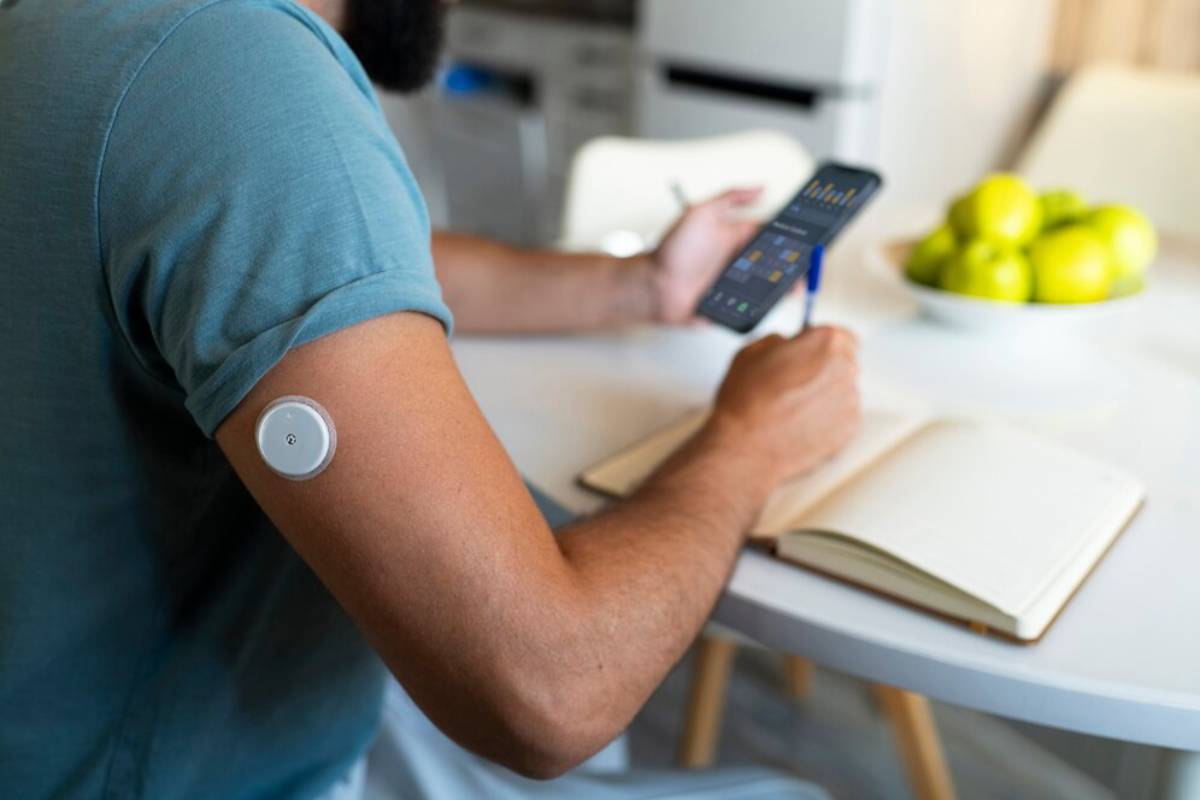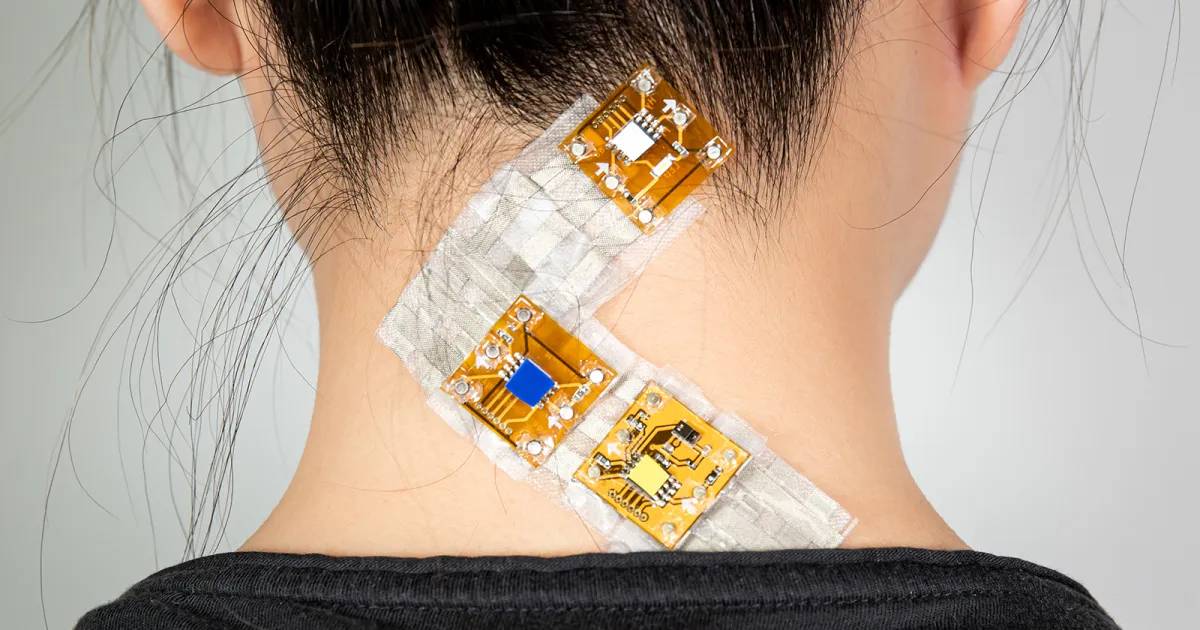
The Role of Smart Tattoos in Real-Time Health Monitoring
Healthcare innovation and wearable tech have led to smart tattoos in recent years. They represent a new frontier in health monitoring. These tiny, smart devices are about the size of a postage stamp. They will change how we track our health and well-being. Smart tattoos differ from traditional wearables like smartwatches and fitness bands. They blend more easily with the body. These tattoos provide constant, real-time data. This information is vital for patients and healthcare providers. In this blog, we will explore smart tattoos and their role in real-time health monitoring. We’ll look at their benefits, applications, and what they could mean for the future of healthcare.
Key Benefits

Revolutionising Health Tech with Smart Tattoos
Smart tattoos are a new health tech. They are wearable biosensors in temporary tattoos. These devices track different body signals. They monitor heart rate, hydration, and glucose levels in real time. Biometric monitoring in a tattoo format has many benefits compared to regular wearables. It is less intrusive and more comfortable. Plus, it can provide continuous data without needing bulky devices.
One major benefit of smart tattoos is that they give instant health insights. This helps people with chronic conditions like diabetes, for whom constant monitoring is key. Smart tattoos give users constant data, which helps them choose healthier options and may also prevent problems before they start.
Smart tattoos help in acute care. They can monitor patients’ recovery after surgery and track vital signs for those who need close attention. Their small size and wireless data transfer make them ideal for hospitals and home care.
Real-Life Applications and Data-Backed Insights
The potential applications of smart tattoos in healthcare are vast. Athletes can use them to check hydration and boost performance. People with heart conditions can track heart rate variability to catch problems early. Smart tattoos can easily connect with healthcare systems. This helps providers watch patients from afar and make data-based choices.
Research has shown that smart tattoos can be highly accurate in biometric monitoring. A study from the University of California found that these devices track glucose levels in people with diabetes. This offers a noninvasive option instead of traditional blood tests, which not only enhances patient comfort but also improves compliance with monitoring regimens.
Other studies used smart tattoos to measure lactate levels during exercise. Lactate is an important sign of muscle fatigue. These insights can help create tailored training programs and support early intervention for athletes who may overexert themselves.
Additional Expert Tips & Common Mistakes to Avoid
Best Practices for Implementing Smart Tattoos
When considering smart tattoos, there are several best practices to keep in mind. First, it’s essential to apply the tattoo correctly. This helps maximise its effectiveness. Follow the manufacturer’s instructions. Make sure your skin is clean and dry before using. Users should know the tattoo’s lifespan. Replace it when needed to keep readings accurate.
Another crucial aspect is data privacy. Like any health tech device, keeping data from smart tattoos safe and private is crucial. Be careful when sharing your data. Use only trusted platforms for data integration. End-to-end encryption is key. It helps protect user information. We must also follow data protection laws like HIPAA and GDPR. This ensures compliance and safety.
Users should be aware of any skin sensitivities or allergies to the adhesives used in smart tattoos. Talk to healthcare professionals before using these devices. This is important, especially for people with existing skin conditions. It can help avoid any bad reactions.
Common Mistakes and Misconceptions
A common misconception about smart tattoos is that they are permanent. In reality, these devices are temporary and designed to be replaced regularly. The tattoo’s longevity depends on the material used, but most are designed for wear over a few days to a week.
Many users incorrectly think that smart tattoos can replace regular medical check-ups. Use these insights with professional medical advice, not as a replacement. Smart tattoos are a helpful addition. They do not replace diagnostic tests or expert evaluations.
Some users think all smart tattoos track health comprehensively. But in reality, many focus on specific parameters. Choosing a smart tattoo that fits the user’s monitoring needs is crucial. This helps ensure the data obtained is relevant and valuable.
Advanced Insights
Exploring the Future of Wearable Biosensors
Smart tattoos and wearable biosensors have a bright future. Research is ongoing to make them even better. A key focus is using artificial intelligence (AI) to improve data analysis. This can help give tailored health recommendations. Smart tattoos may use AI to spot health issues early, offering a proactive way to manage healthcare.
Also, new developments in materials science are leading to better smart tattoos. Researchers are looking into biocompatible materials. These materials stick to the skin better and last longer. This could result in smart tattoos. They might monitor more physiological parameters, which would expand their usefulness.
Researchers are also investigating self-powered smart tattoos using energy-harvesting technologies. These innovations let devices work without batteries or outside power. This means less maintenance and more convenience for users.
Unique Industry Perspectives
Smart tattoos could significantly lower healthcare costs from an industry viewpoint. These devices allow for remote monitoring and early detection of health issues. This can cut down on hospital visits and interventions. As a result, it eases the burden on healthcare systems. Smart tattoos also gather data that helps with population health management. They offer insights into public health trends and guide policy decisions.
Wearable health tech startups and medical device makers are putting more money into smart tattoo research. Big collaborations among biotech firms, schools, and wearable tech companies are speeding up testing and prototypes.
Pharmaceutical companies are investigating smart tattoos. These devices can help track how well patients follow their treatment and respond to medications. In clinical trials, they also help collect data better and improve the quality of evidence for regulatory submissions.
Conclusion: The Role of Smart Tattoos in Real-Time Health Monitoring
Smart tattoos mark a big step in health tech. They provide a simple, non-invasive way to monitor health in real-time. They can give steady, precise data. This could change healthcare delivery. It allows for proactive and personalised care. Technology is constantly changing. People and healthcare providers should accept these changes and see their potential.
Stay updated on the latest trends and best practices to incorporate smart tattoos into your health routine. This advanced technology can improve your health and well-being.


